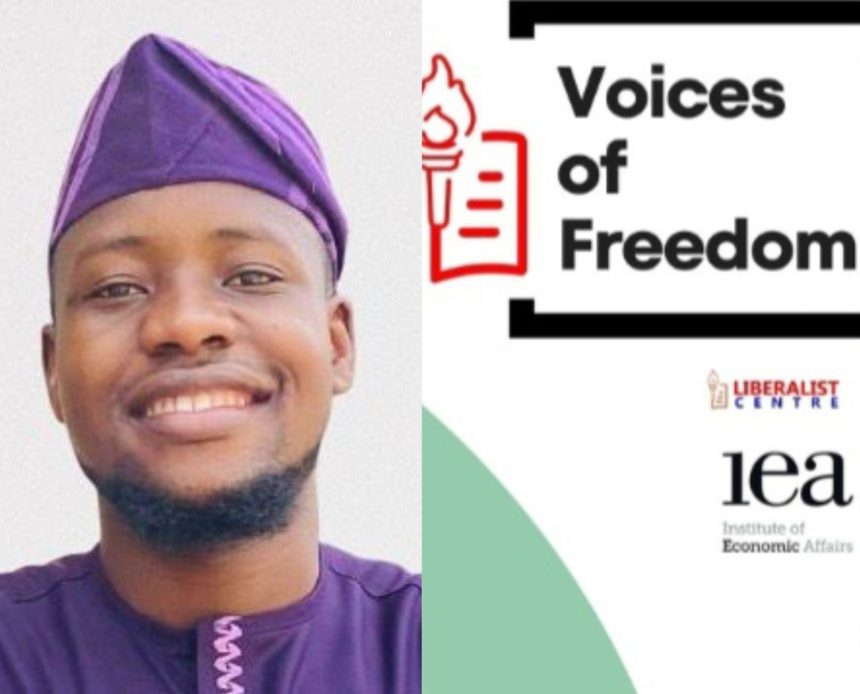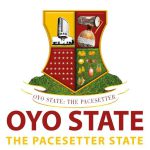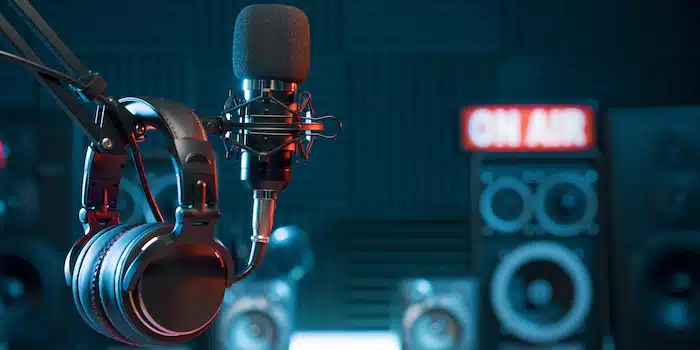Fake news is not just a nuisance; it is a weapon. It misleads the public, divides communities, destabilises democracies, and erodes trust in institutions. But who benefits most from its spread, and how can ordinary citizens fight back?
These questions took centre stage on Voices of Freedom, a weekly segment of General Issues with the General aired on Adamimogo 105.1 FM, in collaboration with the Liberalist Centre’s Journalism for Liberty Fellowship Programme with funding support from the Institute of Economic Affairs (IEA) and Atlas Network.
The guest was Nurudeen Akewushola, Senior Fact-Checker and Investigative Journalist at the International Centre for Investigative Reporting (ICIR), who traced how disinformation thrives, who gains from it, and what tools citizens can use to verify the truth.
Who Benefits from Fake News?
Akewushola argued that the motivation behind disinformation is often contextual. “During elections, fake news is usually deployed by politicians to gain an edge over their rivals. Parties hire ‘fake news merchants’ who create and spread false narratives to sway voters,” he said.
The journalist also noted that in times of conflict, disinformation becomes a strategic weapon. “When two groups are in conflict, one side may spread false claims to discredit the other. It’s all about gaining advantage.”
Beyond politics, Akewushola highlighted the growing danger of phishing scams and financial frauds that thrive on fake news. “Scammers promise giveaways, grants, or quick returns on investment. People fall for it, share personal details or money, and then the fraudsters vanish,” he explained.
How to Detect and Verify Information
Akewushola stressed that ordinary citizens must learn basic verification skills to fight disinformation. “The first habit we must develop is tracing the source. If someone shares a story, ask: Where did you see this? If the source is vague or unverifiable, it’s a red flag,” he advised.
He also recommended fact-checking through online tools. “If you see a picture claiming to show violence in Kogi State, for instance, you can upload it to Google Images to verify its context. If it’s a video, similar tools exist. There’s a whole range—InVID, TinEye, Google Maps for location checks. These are simple but powerful ways to cross-check what you see online.”
The ICIR journalist added that credible news outlets remain vital. “If a story is not reported by any established platform, national dailies, broadcasters, or reputable online outlets, be cautious. That silence may mean the story is false or manipulated.”
Why Verification Matters Now More Than Ever
With Nigeria already buzzing with political conversations ahead of the 2027 elections, Akewushola warned that the country is entering a season where misinformation will intensify. “Fake news works because it feeds on people’s emotions, fear, anger, or hope. If we don’t learn to fact-check, then propaganda, scams, and lies will continue to shape our democracy,” he said.
He urged citizens to distinguish between persuasion and manipulation: “Persuasion is when political actors try to convince you with some truth. Manipulation, on the other hand, is built on lies and distortions. The more people know the difference, the stronger our democracy will be.”
“Voices of Freedom” continues its mission of equipping Nigerians with media literacy skills, bridging the gap between freedom of expression and responsible information use.








